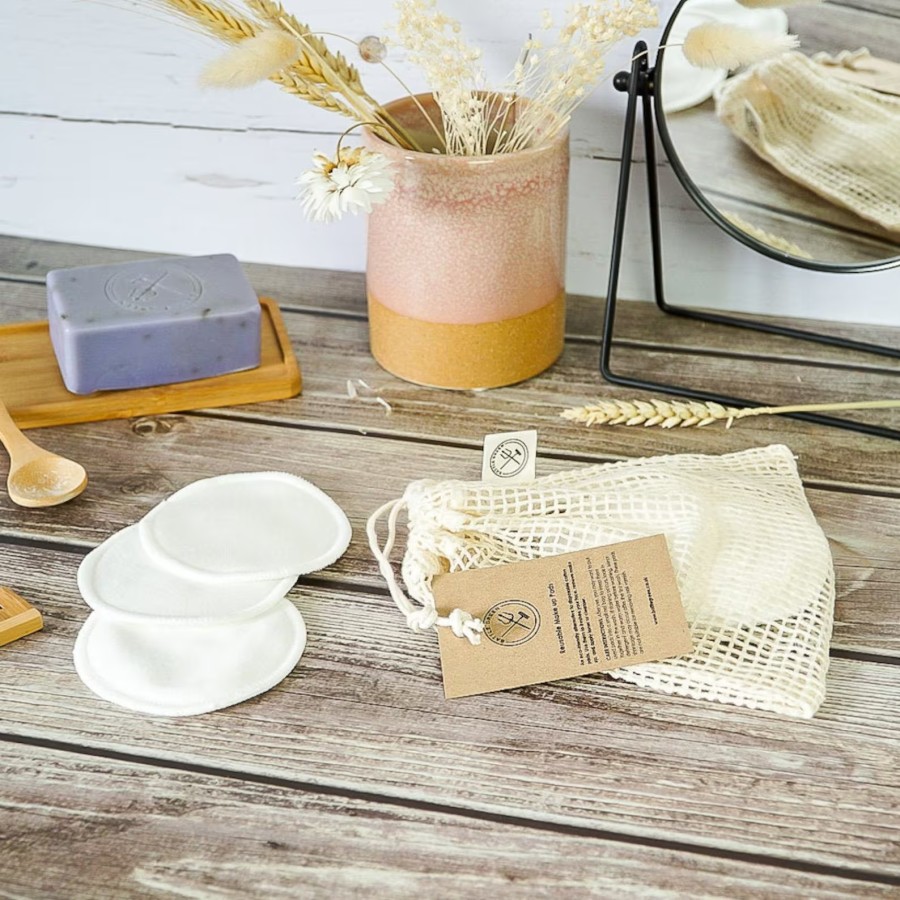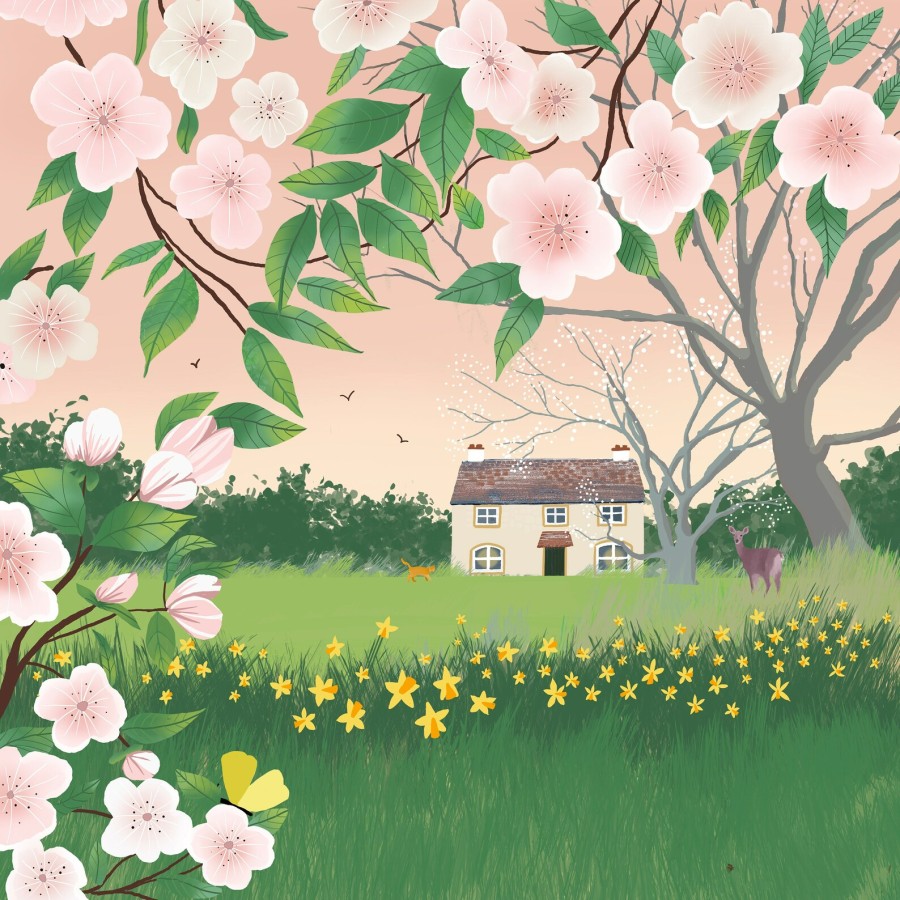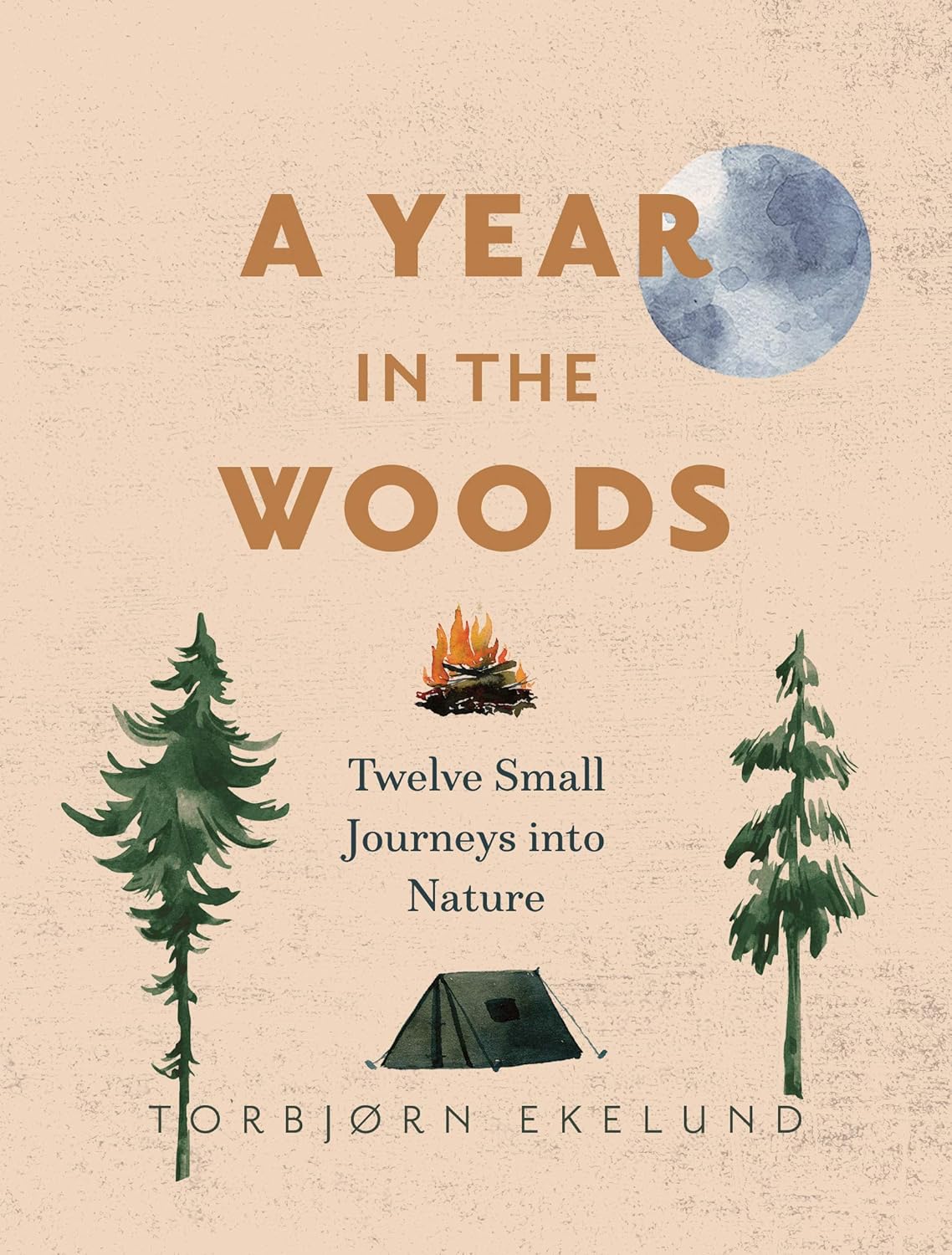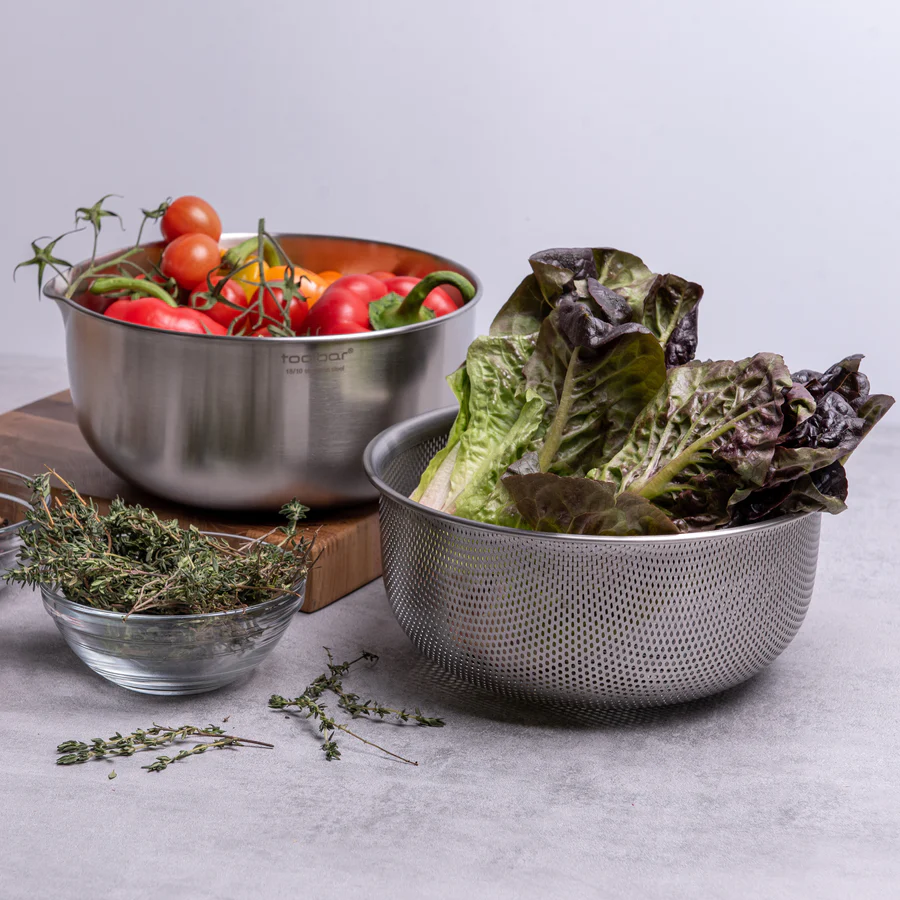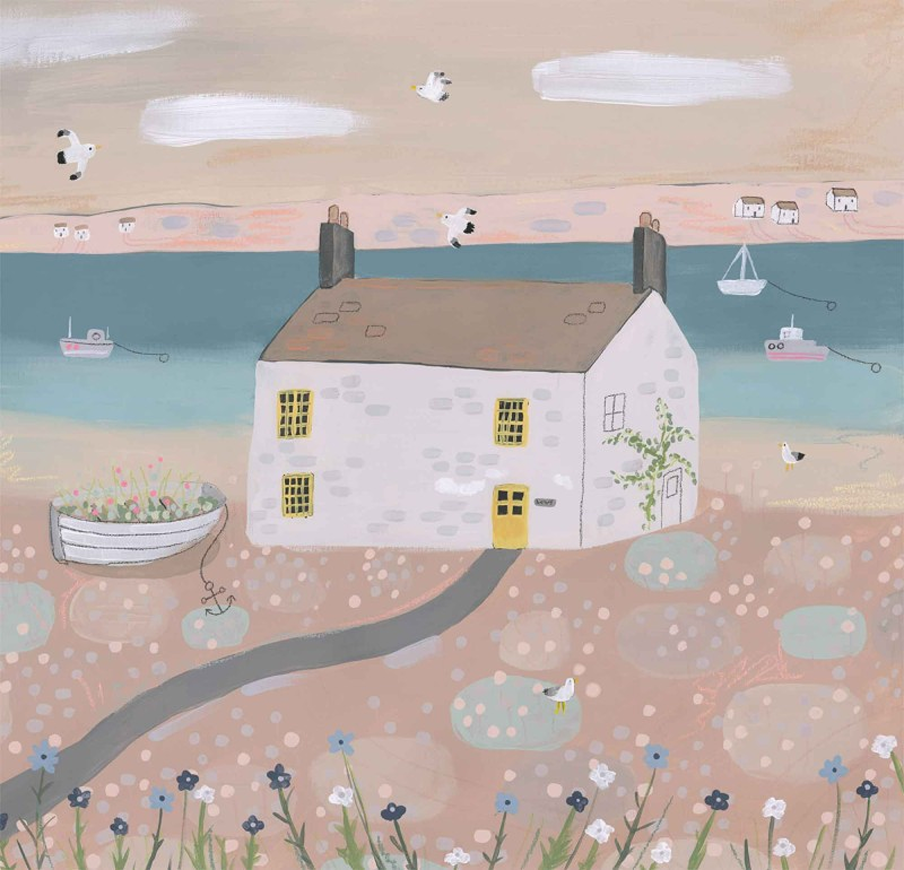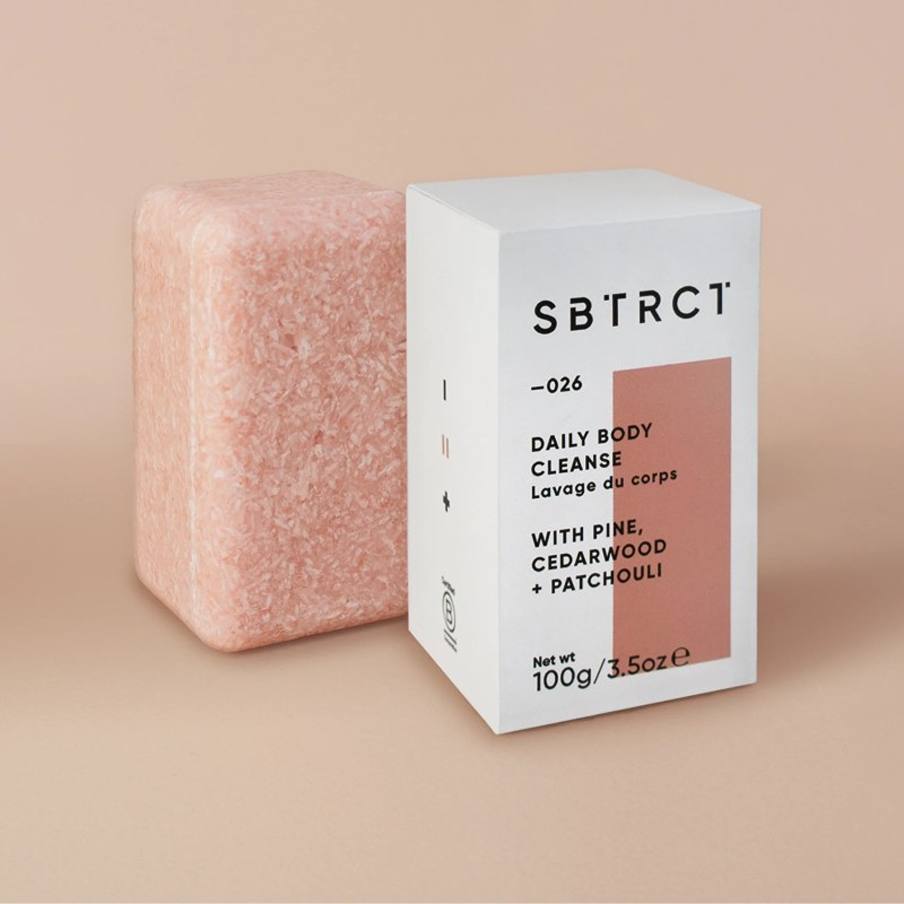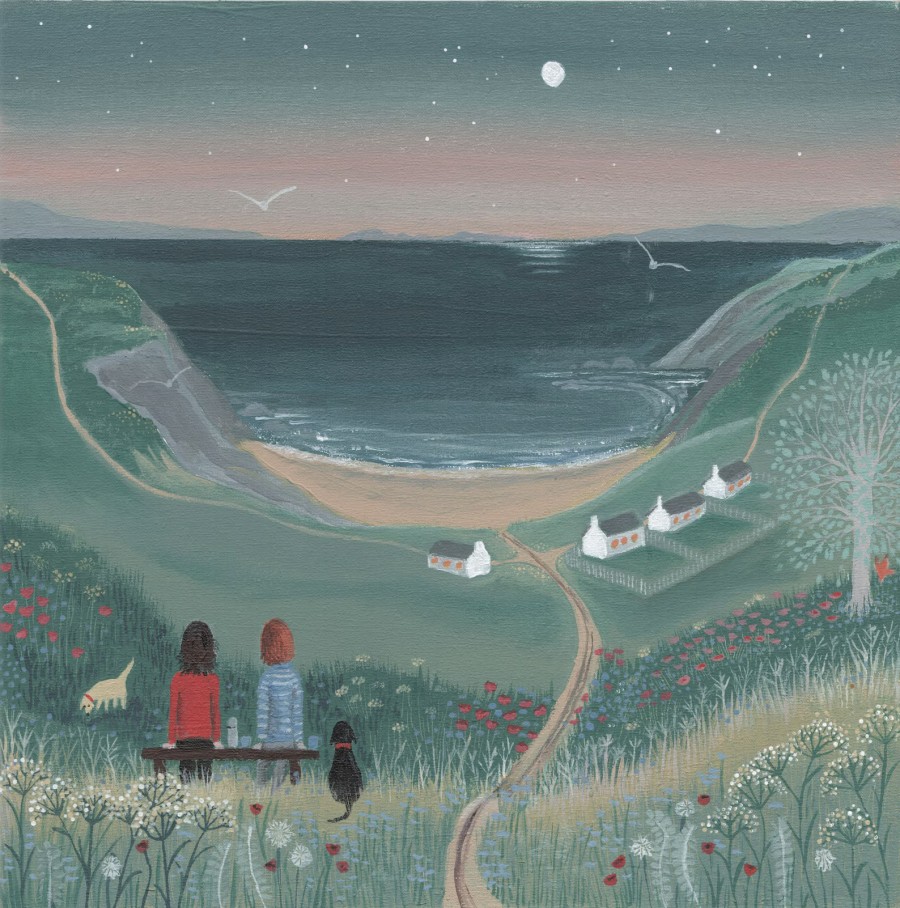
Let’s get information from the experts at America’s Johns Hopkins Center for Sleep. The medical doctor there Charlene Gamaldo says the following is proven to help. Although we often associate going to sleep being helped by taking valerian tea etc, there is no hard evidence that they help. The best solutions to beat insomnia are pretty simple, but you have to be 100% committed to doing all of them and at least for a few weeks.
avoid caffeine
Although often we are told to give up caffeine after 3pm, try going without it at all, this in some cases can make a massive difference. Organic brands offer versions decaffeined with Swiss Water (over chemicals) if you can’t go without your regular cuppa.
take regular physical exercise
Yoga can help but unless it’s vigorous, proper physical exercise earlier in the day (like running, cycling or aerobics) will help to improve sleep later in the day, otherwise it could release too many endorphins at night, which could keep you awake and raise body temperature, so work out at least two hours before. Yogis actually practice at dawn and dusk, not late at night.
don’t drink any alcohol at all
If you have addiction problems speak, to your GP as immediately stopping could cause serious withdrawal issues) Alcohol interferes with sleep. Instead swap it for warm plant milk or tart cherry juice (these increases the body’s production of melatonin and bioavailability of tryptophan).
stay cool between 65 and 72 degrees
Hot flashes for menopausal women and too many walks in warm weather don’t help. Wear cotton pyjamas and bedsheets and keep the room cool. Also be sure the room is dark, and use a torch to visit the bathroom to keep stimuli down.
set a circadian rhythm
Three regular meals and regular exercise help, create a routine that you kind of keep to each day, to help your body adapt. Go to bed earlier and get up earlier, and gradually you should find you sleep better, even if you’re a previous ‘night owl’.
address issues that stop you sleeping
Address issues like physical pain or mental health, if these are the cause of insomnia. Also avoid stimulants like tobacco. If you work shifts, take naps during evening shifts if possible, and minimise exposure to light after finishing evening shifts. If it really affects you, look for a daytime job.
tips to help calm screaming babies!
Many new parents are exhausted, if they can’t get babies to sleep. The Baby Sleep Guide offers 100 simple tips by a maternity nanny and sleep consultant.
be careful with aromatherapy oils
Never use aromatherapy oils (including diffusers) if pregnant/nursing or with affected medical conditions. Also don’t use if pets sleep on your bed (especially harmful to cats, as they can’t break down essential oils). If used, air rooms thoroughly, before letting animals back in rooms. And never pour neat essential oils down sinks, as they can harm aquatic life.
sleep supplements in sustainable packaging
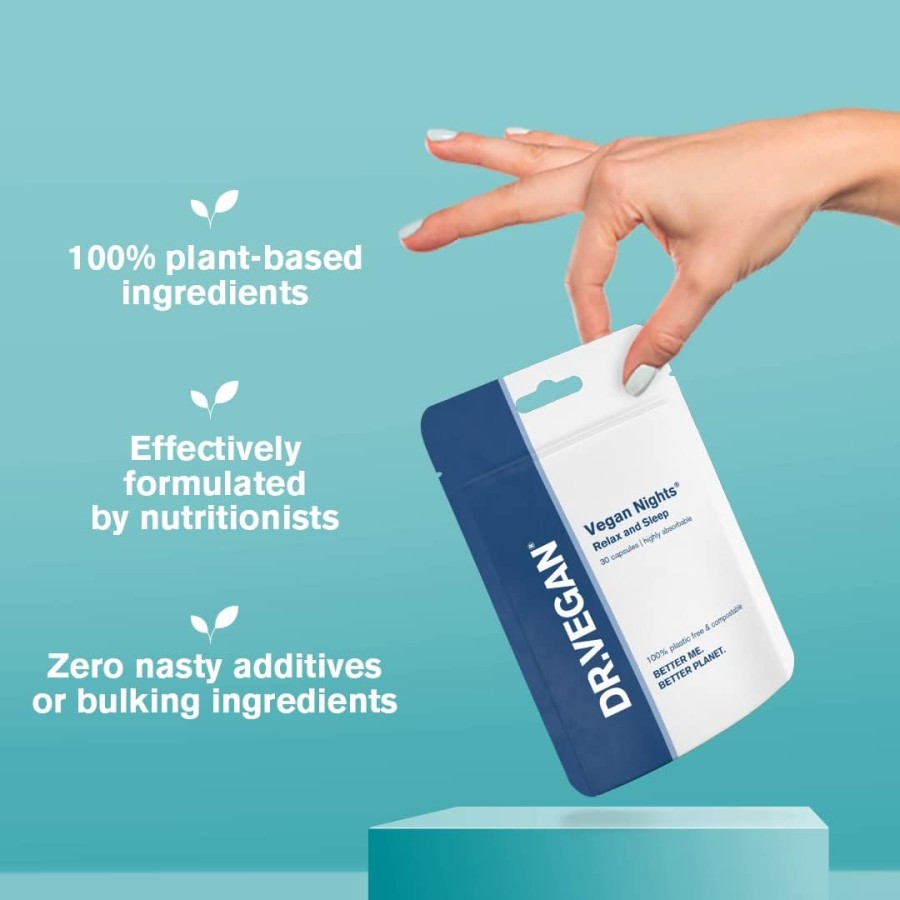
Dr Vegan Nights is a supplement designed to help you sleep, if you suffer with insomnia. If your insomnia is due to anxiety, they recommend taking Ashwagandha KSM-66® alongside. Take both a couple of hours before bed.
Avoid ashwagandha during pregnancy/breastfeeding and if you have autoimmune/thyroid disorders or are about to have surgery. Before taking supplements, check with GP if pregnant/nursing or you have medical conditions or are taking medication. Keep supplements away from young children & pets.
The Vegan Nights supplement is a blend of minerals including magnesium (‘nature’s tranquilliser that also relaxes muscles – often people with stress are deficient) along with zinc (which can combat low mood & anxiety) and chamomile extract – 80% of users report better sleep within weeks on taking this.
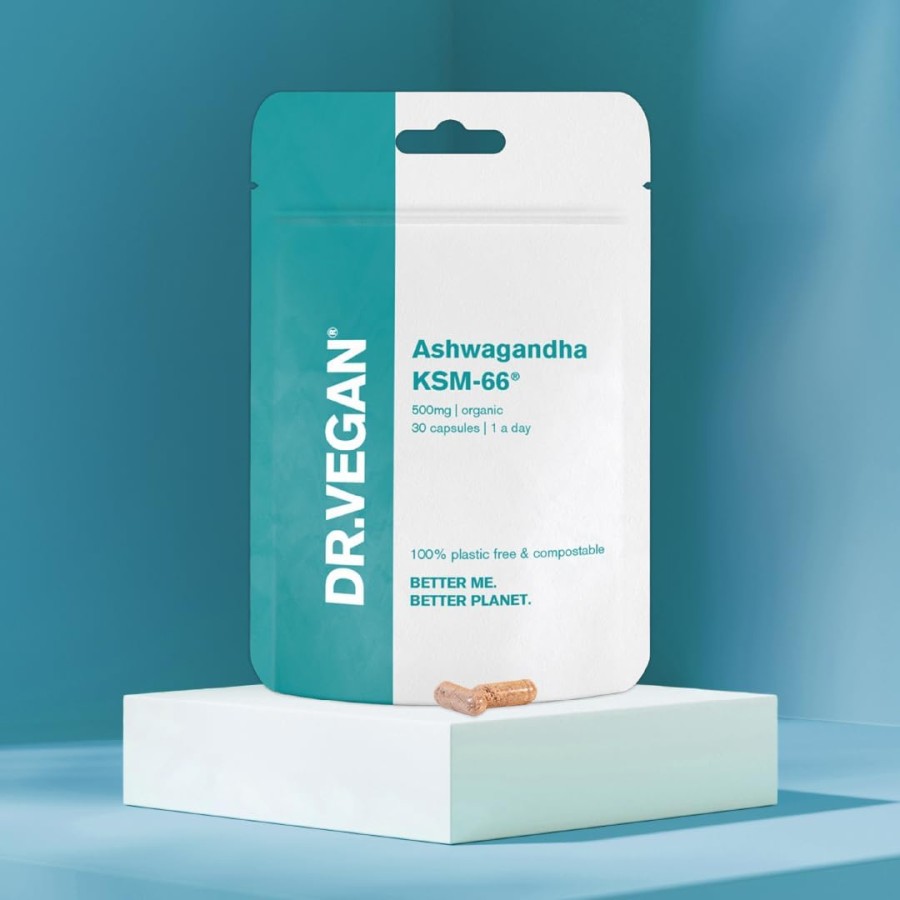
Their organic Ashwagandha is the most clinically trialled form of this Indian herb to naturally manage cortisol, which helps the body to overcome stress, and also increases stamina. Used in Ayurvedic medicine, this helps the body to lower cortisol, a common inhibitor of melatonin (the sleep hormone – cortisol is one of the most common causes of insomnia).

